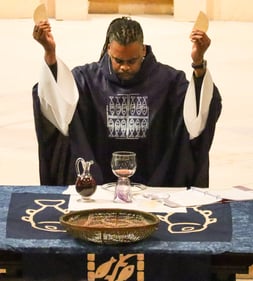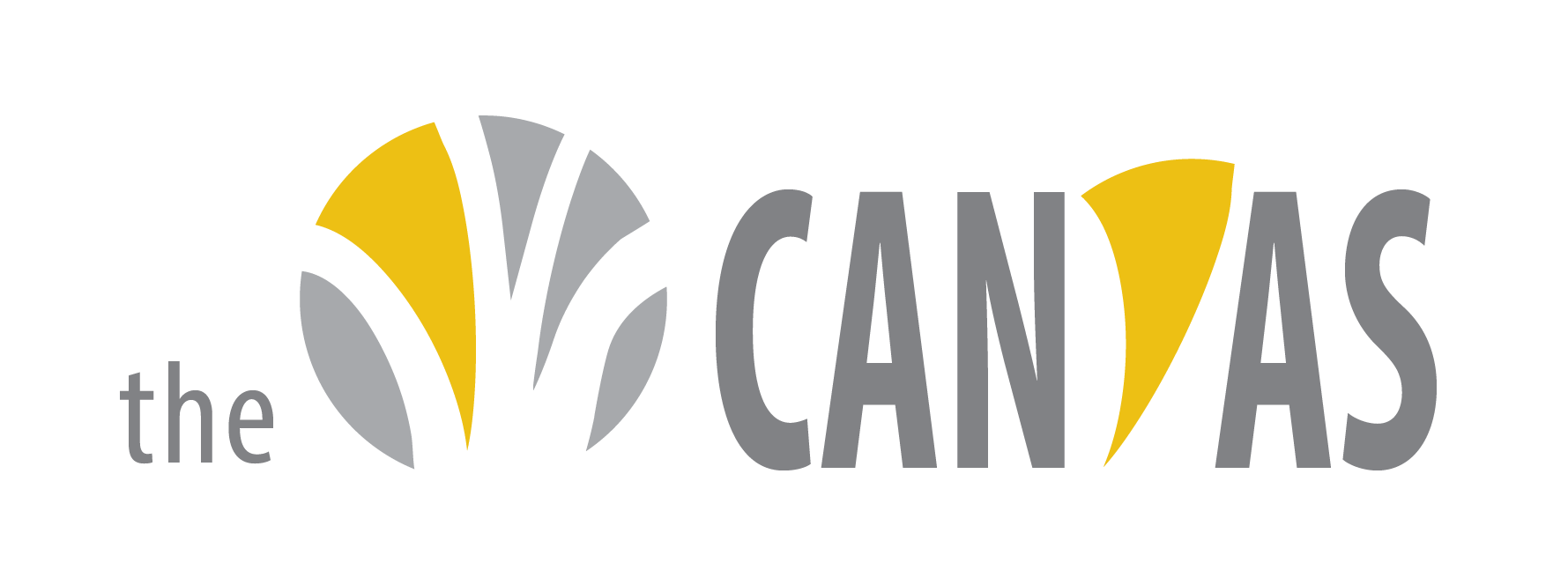
Born into a religious family, DMin student Rev. Canon Tyrone Fowlkes grew up in what he describes as, for years, “the only Black Wesleyan Church in Indiana—what I affectionately call the ‘old church.’” He credits his upbringing in the church for giving him “the faith for which I will always be grateful.” These days, however, Tyrone has moved past his conservative upbringing and embraced a vision of ministering through faith, justice, and art.
“Growing up,” Tyrone remembers, “I had an acute awareness of mistreatment and injustice…and was particularly attuned…when it occurred in the church.” He guesses that a desire to call out unjust treatment of women and those in the LGBTQ+ community perhaps fueled his sense of call to ordination. “I had a burgeoning career as an art director,” Tyrone shares, “when I noticed what felt like a tug at my spirit.” In 1995, he enrolled in an MDiv program at Christian Theological Seminary (CTS)—affiliated with the Christian Church (Disciples of Christ)—in Indianapolis.
Choosing United for the Next Step
The pandemic caused Tyrone to re-examine his life and future. He already had several years of practical ministry experience, but no clear direction. “Suddenly,” he recounts, “I could sense an urgency to start weaving together my life as an artist, my history in social services, and my passion for justice.” It was time to move on to a doctorate degree.
Why United? “I’ve known about United for a long time,” Tyrone explains. He remembers reading United’s journal, ARTS: The Arts in Religion and Theological Studies, at CTS and says it was one of the few resources that allowed him to “envision being an artist and a leader in the church.” In the end, “the decision to enroll at United was the obvious choice.”
Preparing for the Future
As he pursues his DMin, Tyrone says he’s been gleaning lessons both from faculty and fellow students. “I’m learning,” he says, “that effective religious leadership right now is dependent on openness, understanding, and flexibility. I see great examples of this in my peers who are engaged in some rather challenging ministry contexts.” To make an impact, he asserts, “We now have to minister…in contexts that are increasingly multi-faith, spirituality-fluid, and secular.”
Faculty, Tyrone suggests, encourage students to develop the capacity to hold in balance ambiguity and uncertainty while embracing spontaneity and creativity. He credits his Public Theology, Engaging in a
Multi-Faith World, and Arts for Leadership classes for “tapping into some of the problem-solving skills which I intuitively practice as an artist in ways that also apply to the various arenas in which I travel as a priest.”
At present, Tyrone is serving as the Canon for Congregational Life at Philadelphia Episcopal Cathedral, a position he accepted last year. He notes that while the Christian Church (Disciples of Christ) helped him recognize his ministerial gifts, the Episcopal Church inspired in him the desire to become ordained and step into the priesthood. Tyrone is currently in his 14th year of the priesthood.
Equipped with his DMin in Theology and the Arts, Tyrone hopes to “start integrating everything that I have pondered, learned, and experimented with in the arts, in social justice, and in ministry.” He can envision a new model of ministry at the “intersection of faith, justice, and art” that will help faith communities “deepen their connections to the neighborhoods they occupy” and gain the skills they need “to affect social change.”



Your Comments :